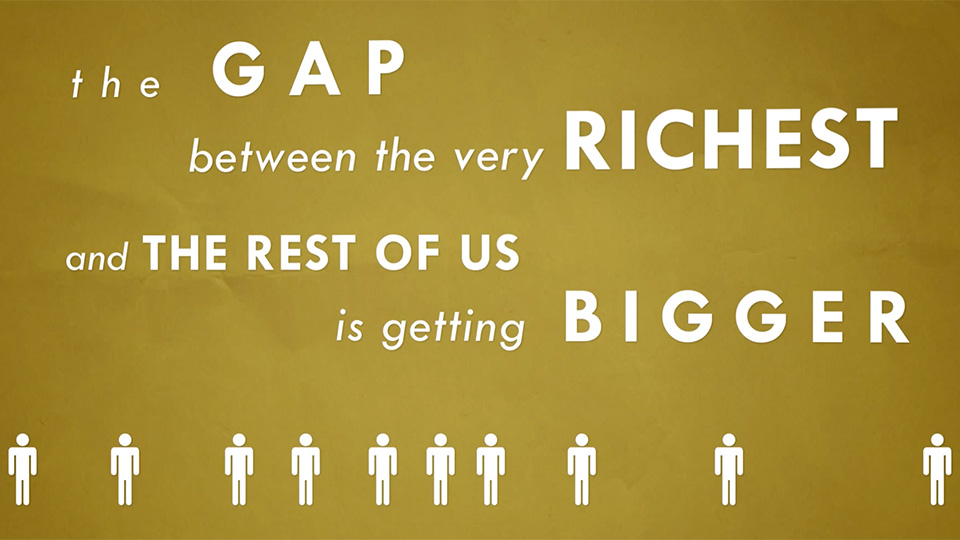Many of the biggest social and economic problems that we're facing today are consequences of the same root problem: the way that money is created. While most of us are taught that only the government is allowed to create money, the reality is that more than 97% of all the money that exists was created by private banks - the same banks you see on the high-street every day.
The money banks create isn't the paper money you keep in your wallet. It's the electronic money that flashes up when you check your balance at an ATM.
Banks create this electronic money whenever they make a loan. That means for every pound in your bank account, someone, somewhere must have a pound of debt. Crucially, banks don’t need any deposits or cash in order to lend, and the authorities find it very difficult to limit how much money - and debt - that banks can create. As a result personal debt is now at its highest level in history.
Since almost all of our money is 'on loan' from banks, someone has to pay interest on nearly every pound in the UK. This interest redistributes money from the bottom 90% of the population to the very top 10%, pushes up the price of houses, and blows up bubbles in financial markets - making the very rich even richer.
Many of us were told that house prices are so high because there are too many people and not enough houses. But the main reason is that house prices have been pushed up by the hundreds of billions of pounds of new money that banks created in the years before the financial crisis.
3 WAYS TO SHOW YOUR SUPPORT
- Log in to post comments












